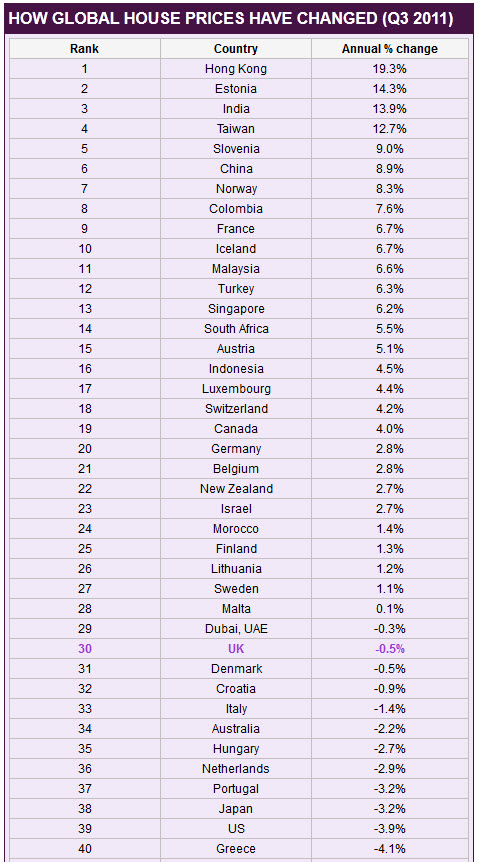It’s BC home assessment time again!
The easiest way to see what value your home has been assessed at for 2012 is to click on this link, http://evaluebc.bcassessment.ca, and enter your address.
In a nutshell, North Vancouver home prices went up. Lions Bay and Squamish prices down. Vancouver, West Vancouver went way up. Whistler went way down.
When Metro Vancouver and regional property owners receive their 2012 assessment notices in the mail over the next few days, they’ll see a wide variation in values by region, city and neighbourhood.
The Sea to Sky region, for example, will see assessments generally down, with Squamish homeowners’ property values dropping up to 10 per cent in some areas and rising five per cent in others, according to BC Assessment. The valuation date was July 1, 2011.
In Whistler and Pemberton, some property owners will see decreases in values up to 15 per cent.
In comparison, North Vancouver home assessments have risen five to 15 per cent, while West Vancouver property owners will see significant increases in the 15-to-30-per-cent range.
Vancouver’s 192,000 property owners can also expect big hikes.
“Almost all homes in [the city of Vancouver] are increasing in value compared to last year’s assessment roll,” said area assessor Jason Grant in a statement. “Most single family homeowners in Vancouver will see significant increases, in the 10 per cent to 25 per cent range. Strata condominium owners will also see increases, but typically less than 10 per cent.”
Property owners in Richmond and Burnaby will also see sharp increases in assessments.
Paul Borgo, deputy assessor with the Vancouver Sea to Sky region, said in an interview that while it’s not unusual to see wide variations in value by region, city or even neighbourhood, “the city of Vancouver has been quite robust in 2011. However, the west side outperformed the east side in single family terms. And West Vancouver also has a very strong market.”
Rosario Setticasi, president of the Real Estate Board of Greater Vancouver, agreed, citing Vancouver’s west side, West Vancouver and Richmond as markets that performed better than others. “They’re favoured areas for people to live in [and] there was some influence from foreign investment.”
Setticasi also noted the assessments reflect values on July 1. “We had a surge in the beginning of [2011], it peaked in the summer, and came down a bit in the second half of the year, which won’t be reflected in the assessment.”
Robyn Adamache, senior market analyst for Metro Vancouver, Canada Mortgage and Housing Corp., said she is not surprised at the variation in assessment values given the fundamentals of the region’s real estate market in 2011. “There were wide variations in growth in home prices in different municipalities, so I would expect more variation than usual.”
Overall, Vancouver’s assessment roll increased from $222 billion last year to $254 billion this year, while West Vancouver’s assessment roll increased from $26.4 billion last year to more than $30.2 billion this year.
But Squamish’s assessment roll declined from $3.92 billion last year to $3.81 billion.
An example of local market trends, according to BC Assessment, is a single family home in Squamish’s Garibaldi Highlands neighbourhood which will see its assessment drop from $531,000 to $497,000, while another home in Whistler’s Alpine Meadows neighbourhood will see its assessed value drop from $964,000 to $918,000.
However, a home on a 50-foot lot on Vancouver’s west side will see its value rise from $1.19 million to $1.645 million, while another east Vancouver detached home on a 33-foot lot will rise from $816,000 to $1.03 million.
In West Vancouver’s tony British Properties, an example of the trend to higher prices is a home that will rise from $1.53 million to $2.2 million.
In the Fraser Valley, property owners will see little change in values this year.
“Most homes in the Fraser Valley have remained stable in value compared to last year’s assessment roll,” said deputy assessor John Green.
On a percentage basis, the total change for all residential property types was up 7.9 per cent in Surrey, 16.4 per cent in Vancouver, 16.5 per cent in Richmond, 5.2 per cent in New Westminster, 12.2 per cent in Burnaby, 6.9 per cent in Coquitlam, 5.1 per cent in North Vancouver city, 7.6 per cent in North Vancouver district, 15.9 per cent in West Vancouver, but down 1.9 per cent in Squamish, five per cent in Lions Bay, 6.2 per cent in Whistler and 3.2 per cent in Sechelt.
Pat Kelly, owner of Whistler Real Estate Company, said the resort municipality saw a drop in sales both before and after the 2010 Olympics, although the market has picked up since summer.
“There was a volatile world economic situation [and] people were looking for value for their money, things they need as against things they want.”
He said that while activity picked up in late 2011, prices haven’t reflected that because most activity is in the under-$1 million market.
He also noted that there has been a “noticeable” drop in buyers from the U.S.
Kelly, whose company is also involved in the Squamish market, said Squamish prices have flatlined, partly because there’s no major employer in the town.
“Squamish hasn’t had the same appeal as other suburban markets, and I don’t know why. It’s very good value for an area within 40 minutes of downtown Vancouver.”
Assessments were generally stable or down in other parts of the province, including Penticton and Kelowna, which saw a drop of 2.7 per cent in the total value of all residential properties.
The total number of B.C. properties on the 2012 roll is 1,917,394, a 0.75-per-cent increase from 2011.
The total value of real estate on the 2012 roll is $1.1 trillion, a 6.42-per-cent increase from 2011.
Source: Brian Morton, Vancouver Sun





